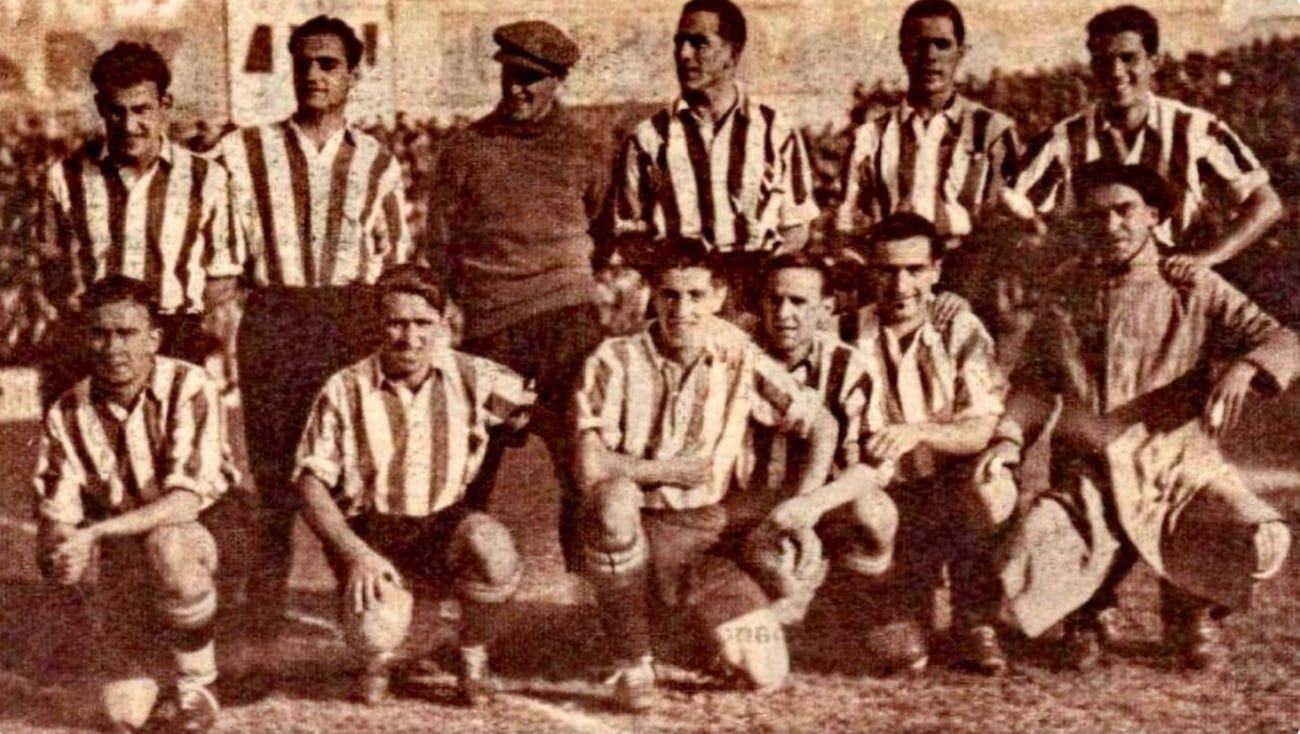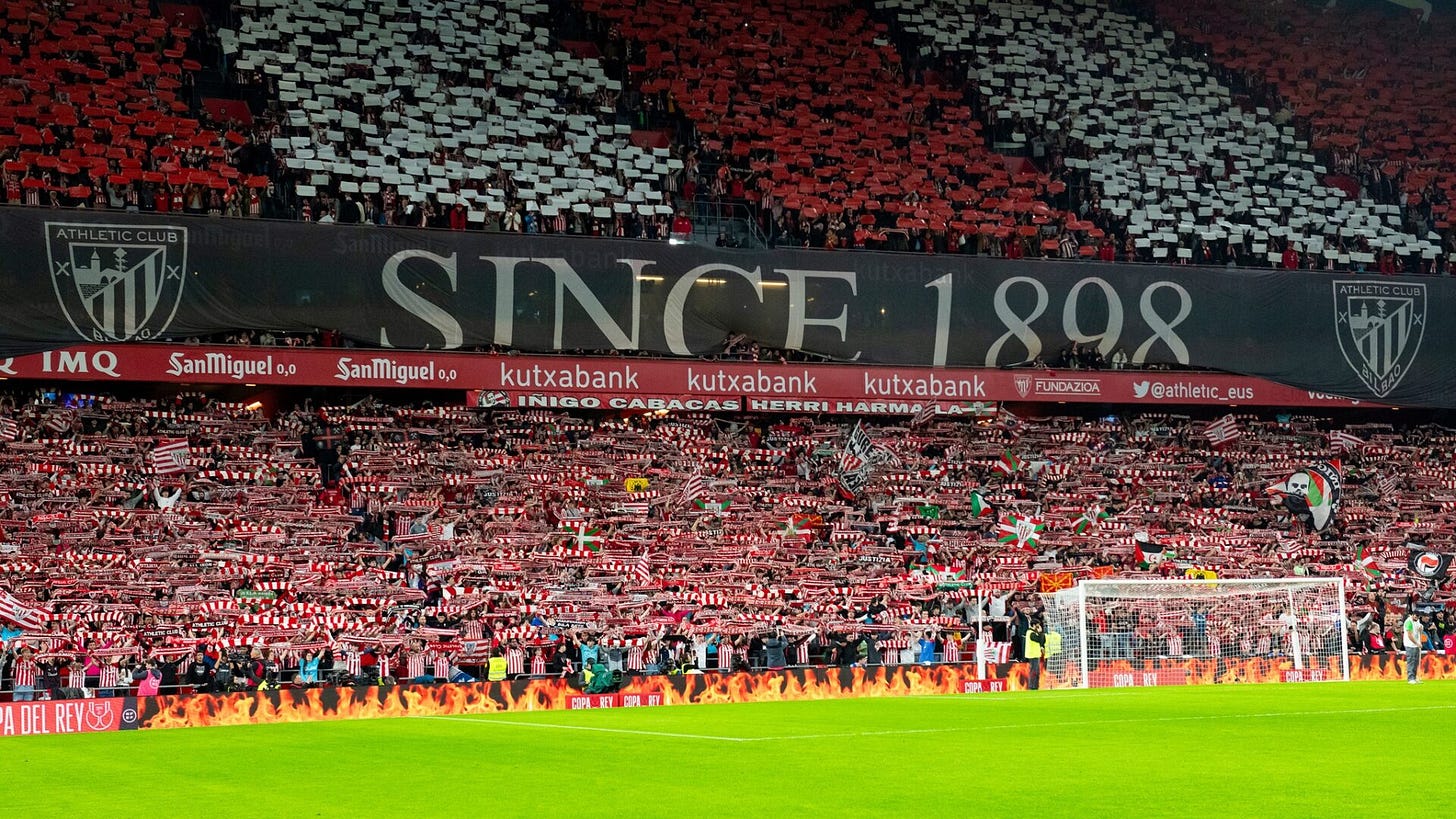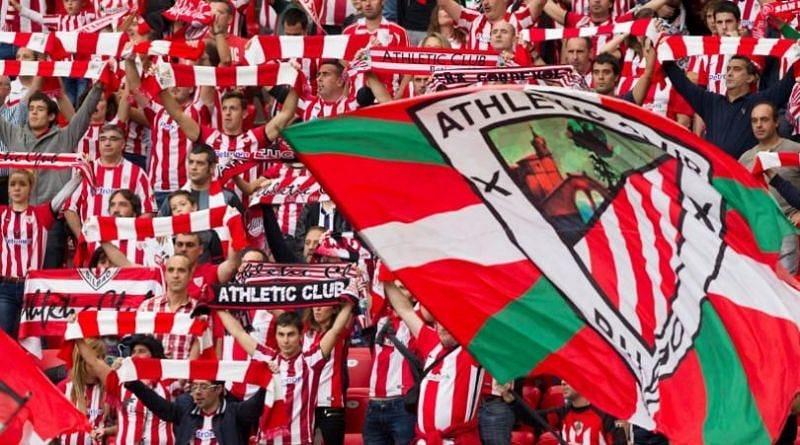Basque Brethren - Euzkadi - They Hung out the Flag of War!
This article first featured in our fanzine - issue 129 - we thought it was worth republishing. Hope you enjoy it.
“Aldi luzeak, guztia ahaztu” is a Basque saying meaning 'With time, all things are forgotten'.
Lest we not discuss Kevin Keegan's swashbuckling side of the mid 90s facing the cauldron of San Mémes being ousted on away goals in the UEFA Cup by Atletico Bilbao.
2017 saw the 80th anniversary of the Basque national team tour of Europe and Latin America during the Spanish Civil War.
Where football and politics intertwined as a journey into the abyss began.
During the Civil War of 1936-1939 in league football was cancelled in the Basque country.
In April 1937 a Basque selection was setup known as Euzkadiko selekzioa with the dual goals of raising monies and awareness of the Republican plight during the Civil War.
This was a team of Basque Ambassadors on foreign lands.
A tour of Europe was organised with games to be played in France, Poland. Russia, Norway and Denmark.
The side included Isidro Langara probably one of Spain's greatest strikers and winner of multiple Pichichi awards - the greatest Basque player of all time.
On the 26th April 1937 as the Nazi Luftwaffe flew over Guernica causing untold destruction; Euzkadi kicked off against reigning French Champions Racing Paris winning 3-0 in the Parc Des Princes.
Matches followed throughout May '37 against Olympique Marseille and Séte and two more games against Racing Paris which saw a draw and a loss for the Basques.
FIFA had banned all FIFA-affiliated countries and clubs from playing any Spanish teams during the Civil War.
Euzkadi had their first run in with FIFA when the Dutch Federation banned them from playing Rotterdam following discussions with FIFA.
The team played their first nation outside of Spain, the Czechoslovakia runners up in the 1934 World Cup who beat the Basques 3-2.
When on the 19th of June, as Franco's forces captured Bilbao, the Basque selection had landed in Moscow; despatching all opposition in their wake.
The team lost only one game as they defeated local club sides Lokomotiv Moscow (1–5), Dinamo Moscow twice (1–2) and (4–7), Dinamo Leningrad (2–2), Spartak Moscow (6–2), Dinamo Kiev (1–3), Dinamo Tbilisi (0–2), the Georgian football team (1–3), and finally Dinamo Minsk (1–6).
The Soviet football federation had been desperate to win the final game to be played in the Soviet Union, they invited the best players from different parts of the state to play for Spartak.
By August 1937 the team found themselves in Scandinavia playing Norway and Denmark, defeating the Danes 11-1 the biggest victory on the tour.
Monies raised via games on the tour went to help to fund a hospital in La Rosarie, France which housed Spanish and Basque refugees.
Funds were also provided to relieve the plight of Basque children who had been evacuated by sea to the UK and South America - those children were known as 'War Orphans' and some never saw their parents or homeland again.
Some of those Basque children found refuge at St Vincent’s Roman Catholic Orphanage in Brunel Terrace, Elswick, Newcastle and were looked after by the nuns of St Vincent’s Convent.
As the European tour came to an end the Basque selection were faced with a dilemma as their home country had been captured by Franco and thus were unable to return.
Euzkadi were given permission by FIFA to play in Mexico and sailed across the Atlantic to Veracruz where they played nine games against Mexican sides.
Mexico was then ruled by President Cardenaz, a pro-Republican and the country as a whole was supportive of the Republican cause; today there is a statue to those Spanish Refugees who landed at Veracruz port during the Civil War.
This followed games in Cuba and one match in Chile as they made their way across the Andes. sadly the tour was stalled in Argentina when FIFA decided to ban the Euzkadi from playing any more matches.
Only through the goodwill of the Argentinian people did the team survive.
Euzkadi returned to play in Mexico and Cuba but the team as a national representative side wound up due to continuing conflicts with FIFA.
In 1938 prior to the start of the new Mexican league the Basques contacted the Mexican football authorities to see if they could enter a league side.
The authorities agreed and so Club Deportivo Euzkadi was founded in season 1938-39.
In the Mexican league they played twelve games, gained fifteen points and finished second.
The team disbanded soon after with a final friendly against Paraguyan side Ateltico Corrales making that game their swansong.
Euzkadi never played again until the 16th August in 1979 when theytook to the field under the name 'Euskadiko selekzioa' defeating a League of Ireland team 4-1 in San Mames during the Great Week of Bilbao.
In an era of global football and foreign ownership in England; Athletic Bilbao's mantra of “con cantera y afición, no hace falta importación” translated to “with home grown talent and local support, you don’t need for imports” goes against the grain.
An exhibition by Basque Historian Joseba Gotzon and the Patrick O'Connell memorial fund about the tour took place at the Feile Belfast annual festival in Belfast, Northern Ireland in August 2017.
Fergus Dowd, Patrick O'Connell Memorial Society








Fascinating article, Fergus about which I had no idea.
‘War Orphans’ - breaks my heart that bit.
I had the pleasure of showing a huge group of Basque fans where SJP was when we played Bilbao. They were full of praise for both our team and the city.